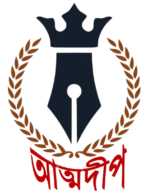Volume-I, Issue-III, January 2025
Volume-I, Issue-III, January, 2025 |
আধুনিক ভাষ্যে প্রাচীন ও মধ্য ভারতীয় সাহিত্য: কবি বিষ্ণু দে-র কাব্য সমগ্র ড. অসিত বিশ্বাস, ডালখোলা, উত্তর দিনাজপুর, পশ্চিমবঙ্গ, ভারত |
Received: 23.12.2024 | Send for Revised: 18.01.2025 | Revised Received: 19.01.2025 | Page No: 498-508 |
Accepted: 25.01.2025 | Published Online: 30.01.2025 | ||
DOI: 10.69655/atmadeep.vol.1.issue.03W.037 | |||
Ancient and Medieval Indian Literature in Modern Discourse: The
Collected Poems of Poet Bishnu Dey
Dr. Asit Biswas, Dalkhola, West Dinajpur, West Bengal, India | ||
ABSTRACT | ||
The evolution of poetry draws inspiration from ancestral traditions, embracing both heritage and innovation. Modern Bengali literature reflects a fusion of ancient and medieval Indian literary archetypes, shaped by the implementation of the Charter Act on one hand and the emergence of modern sensibilities on the other. This adaptation was pioneered by Michael Madhusudan Dutt and continues to evolve, even in the era of artificial intelligence. The poetry of Bishnu Dey, spanning from the 1930s to the 1980s, exhibits traces of literary imitation. His early works, particularly the first three collections—before the influence of Rabindranath Tagore’s Purana and Marxian philosophy—are deeply rooted in Vedic and Upanishadic sources. From the 1940s to the 1960s, his poetry increasingly reflects the influence of the Vedas, Upanishads, Ramayana, Mahabharata, and classical Sanskrit literature. However, by the 1970s, this tendency towards imitation appears to decline. This essay examines Dey’s poetry through the lens of alliteration theory, offering a brief introduction to its sources and stylistic patterns. Special attention is given to identifying his creative tendencies while minimizing redundant references to the same literary influences. | ||
Keyword
|

